Twelve-year-old Zach Haynes, BBC Wildlife magazine’s inspirational junior blogger of the year, describes himself as a “small dude with a big love of nature”. Zach regularly writes about nature and his daily discoveries in his blog Year of Nature. In this blog for Rewilding Europe, he talks to us about his love of wildlife, and reminds us how rewilding can always take place on a small, very personal scale.
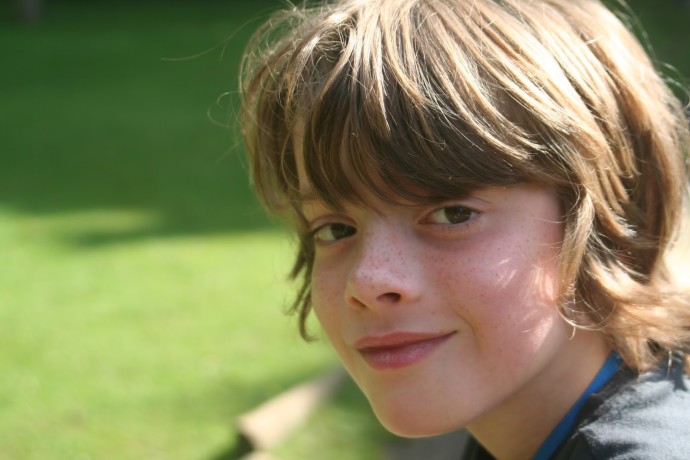
My name is Zach and I live in quite a rural part of the United Kingdom (UK). I’m pretty lucky as I have lots of lovely places to visit not far from me, such as nature reserves run by the Yorkshire Wildlife Trusts.
With these reserves on my doorstep, I can see first hand the important work that conservation organisations in the UK are doing. Despite their efforts, however, a lot of wildlife species in the UK are on the decline. Reserves are great, but in reality they only represent little pieces of land where wildlife can take refuge.
I’m not sure if there is anywhere in the UK that hasn’t been altered by man to some extent, so I don’t know if I have ever been anywhere truly wild. We depend on the Earth and nature to survive, but it doesn’t seem as though man as a species is making a very good job of looking after nature.
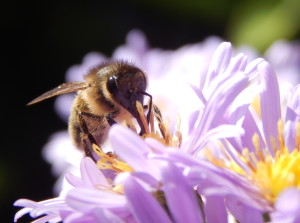
So I think the concept of rewilding – letting nature take care of things – is a very good idea. I love the thought of having free-flowing rivers passing through almost pristine landscapes, accompanied by the re-introduction of animals such as the beaver, lynx and wild boar, and in some places even the wolf. I know this sounds ambitious, and there would be a lot of work involved to make it happen safely.
But we can always start small and work our way up. We can make changes that restore and stabilise food chains – by that I mean the plants, the insects, the fungi and everything else that fit into these chains. I’d love to walk in my local forest and hear the cry of a lynx. While I’d know that the chances of spotting one was very slim, I’d also know that they were out there, controlling the deer population, and making this small island a better place. Nature would be taking care of itself.
I’d love to see more upland forests giving variety to the landscape – moors are wonderful places. Currently there are only a few small forest plantations on the hills close to where I live. The woods we have here are mostly in the valleys, and some are conifer plantations.
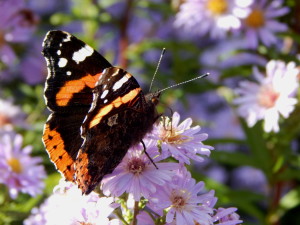
I love that Beavers are wild again in the UK and that they are making a difference, creating habitats for insects and helping man by slowing down floodwaters. I’d love to see more raptors flying freely, being the keen birdwatcher that I am. I have never seen a hen harrier, anywhere. It would be AMAZING to see something as beautiful as this bird soaring next to where I live. So I’d love to see more rewilding – letting nature flourish and taking care of itself without man’s intervention.
Whenever I go to a nature reserve – such as my local nature reserve, Nosterfield – or even farther afield to a place like Lakenheath Fen, it’s unusual to see people my age. I always see people of my parent’s age, and sometimes even older. If there are fewer and fewer younger people that are interested in and care about nature, who is going to keep these nature reserves going? Who is going to keep species such as the house sparrow and honey bee from going extinct?
If we don’t get more young people interested in nature, then soon there isn’t going to be anybody walking around nature reserves, let alone keeping them running. There won’t be anyone looking for unusual birds that are getting blown in on new weather fronts, or rescuing birds. There’ll be nobody looking out for wolves or lynx or mice or peacock butterflies. What I’m saying is, if we don’t inspire young people to get into nature, then there will hardly be anyone here to take care of the Earth, to help stop us doing the things that harm the planet.
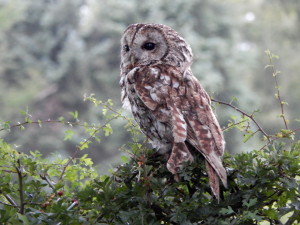
I think we need to get people interested in nature at a younger age. At my school nature certainly isn’t “cool”. But if you really get into it, nature can light up your life. It has helped me a lot, having a place to relax, be curious, be creative, be observant, switch off and watch how the tapestry of life comes together. I’d love future generations to enjoy nature as much as I do.
I think rewilding is a really important idea, and I want to help make this happen. But what can I do as a 12-year-old with just a small garden?
A really important part of rewilding is actually reconnecting people with nature so they are interested in it and want to help protect it. At my school the things that are cool are football and celebrities, but not important stuff like nature. If I talked about my nature exploits at school, people would just make fun of me – this is why I decided to start a blog.
I’ve been really pleased and also surprised at just how many people like my blog. I think in a small way I’ve been able to reconnect some people with nature through my words and photos. Ironically, that reconnection has extended to some of my school friends as well. I’ve been in the paper a few times and also on the radio – when they’ve seen this I’ve been able to talk to them about nature too.
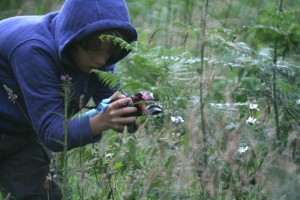
As a family we do things in our garden too. It’s not totally wild, but we compost, we have a pile of sticks and logs that are left to decay, we don’t use artificial pesticides or fertilizers, and we try to plant things that are good for and help to attract bugs, butterflies and bees, not to mention a pretty good assortment of garden birds. Our garden is small, but it has a lot of wildlife in it.
I think that small acts like these will add up. They could be just as important as big things such as reintroducing lost species. Right now, everyone just needs to get on board!
I hope you enjoyed my thoughts. Please visit my blog here.
